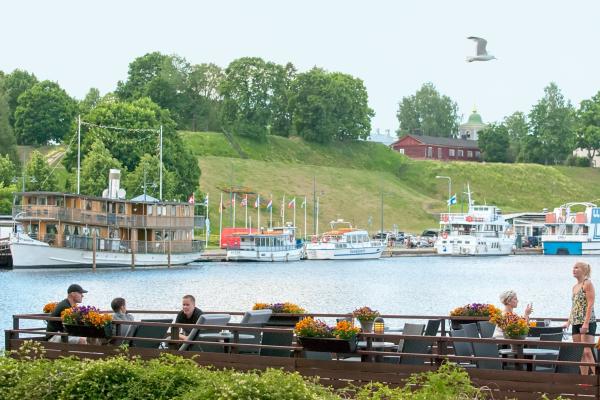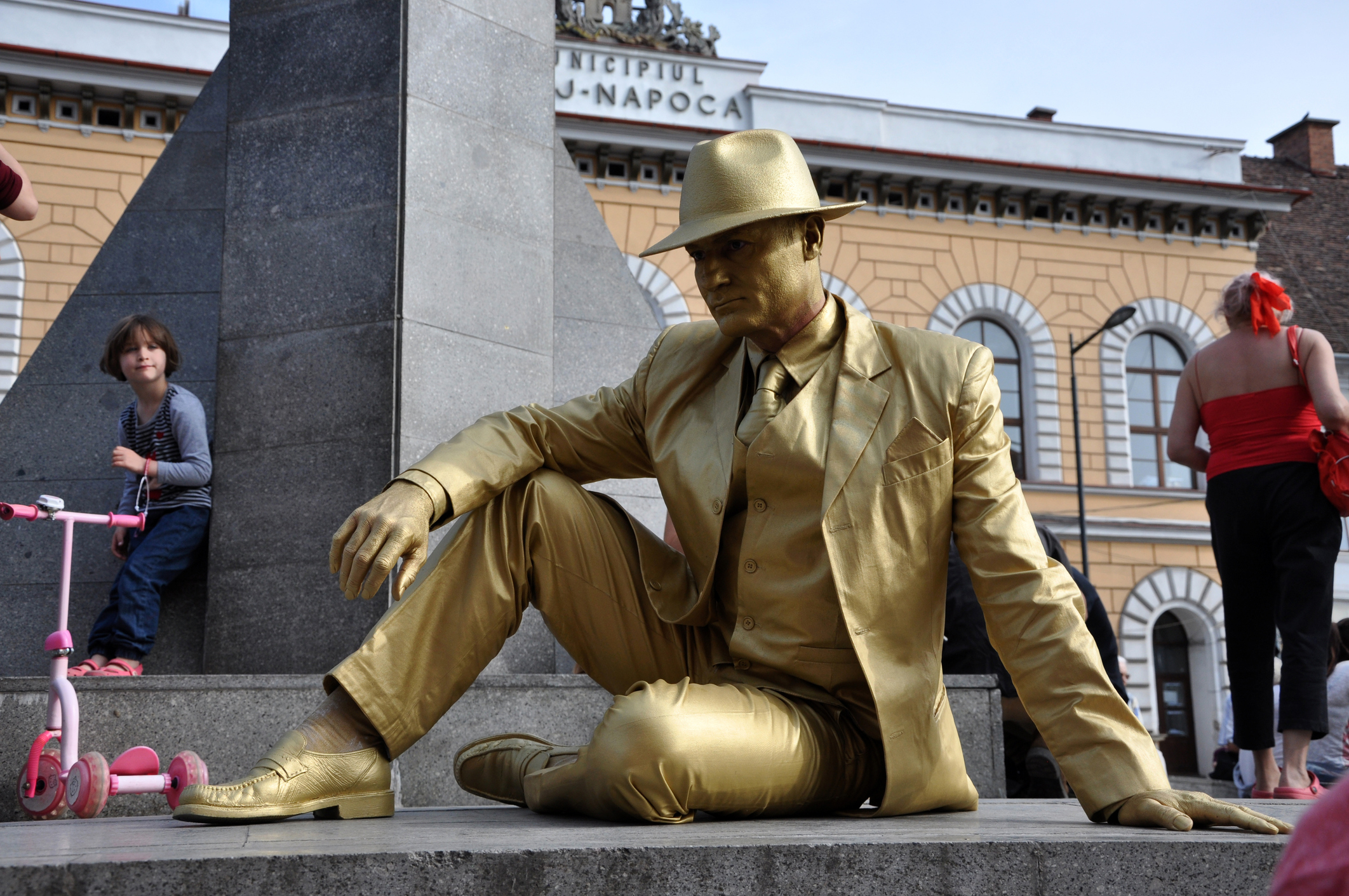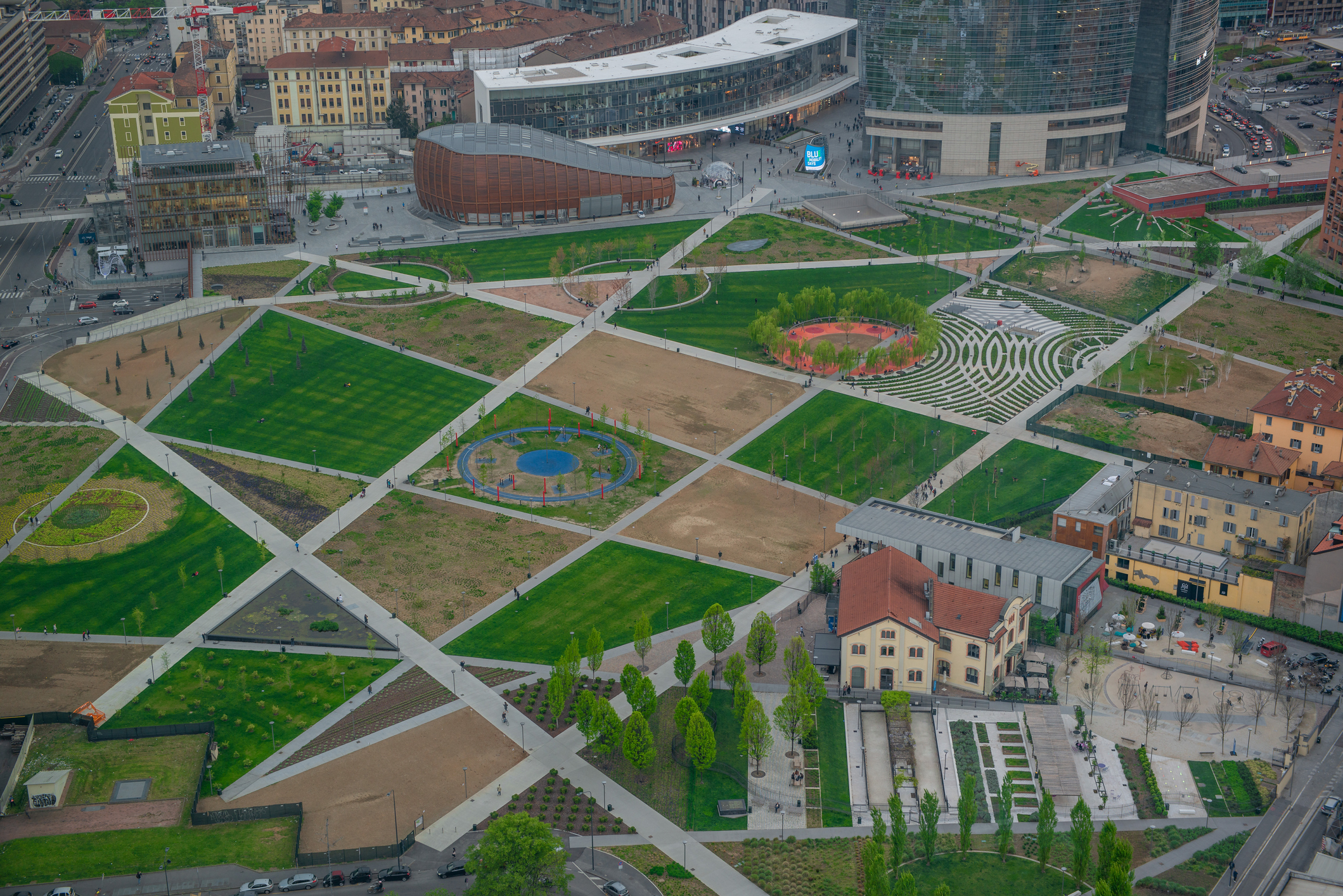
Three innovative examples of EU cities supporting the green skills transition
Inventing a new greener construction material – Lappeenranta, Finland
Supporting skills in the green transition is particularly important for the City of Lappeenranta, where 10% of local jobs rely directly on carbon intensive industries such as mining, cement and concrete production.
A central solution, pursued in the Urban Infra Revolution project of UIA, is to promote the circular economy in construction, creating new business opportunities and jobs while reducing waste and CO2 emissions. Involving local universities, businesses and residents, Lappeenranta decided to find an alternative to the polluting steel reinforced concrete used in local infrastructure.
Their quest revealed innovative products and technologies using local, natural products. The project created a new, closed-loop polymer composite. 100% recyclable, manufactured by 3D printers, it can replace reinforced concrete, even in arctic conditions! 99% of the raw materials are local and recycled, sourced from mining and other industrial waste. Businesses involved in traditional concrete manufacture were given step-by-step guidance to shift towards the new geopolymer process.
One main key to success was the local authority’s proactive leadership role. They facilitated a collaboration platform for about 50 local businesses – including traditional industries – to explore and develop circular solutions. The city also facilitated a shared patent application for committed businesses. with Finnish law requiring citizens’ approval for local infrastructure changes, the project created a 3D virtual 2050 city allowing residents to experience and comment on proposed changes.
Urban infra revolution - Circular economy materials and novel method development to produce recyclable and functional urban construction products
Lappeenranta case study in the UIA report Skills for a green future
Re-specialising the workforce to embrace new technologies – Cluj-Napoca, Romania
With Cluj-Napoca’s economy relying heavily on low value-added service activities, 49% of the local economy was estimated to be highly vulnerable to emerging technologies and automation. In response, the city launched an innovative scheme to re-specialise its workforce. They built a socially resilient ecosystem supporting jobs in what is described as a “technologically enriched, safe, ethical, inclusive, sustainable” future.
Cluj-Napoca’s UIA project, Cluj Future of Work, turned to smart specialisation, enhancing the competitiveness and social engagement of the creative sector, which employs 20% of local workers. Understanding that skilling, reskilling, and creating green jobs also involves fostering social and economic inclusion, the city launched diverse local actions. These include:
- New training and skills development. One programme, Culturpreneurs, has supported scores of entrepreneurs, from second-hand clothes upcyclers to original chair designers.
- Three high tech Labs around CREIC, the Regional Centre of Excellence for Creative Industries, and new jobs supporting local public-industry partnerships. The Labs enabled students and entrepreneurs – ranging from architects to furniture-makers – to test sustainable new methods using cutting-edge technology, and provided retraining for professionals in fast-evolving sectors.
- Better job access for members of a Roma community living on a landfill site. Solutions include new wi-fi access and bus routes, and support for selected entrepreneurs proposing sustainable business ideas.
Cluj Future of Work
Cluj-Napoca case study in the UIA report Skills for a green future
Creating an innovation hub for peri-urban agriculture – Milan, Italy
The 2015 Milan Urban Food Policy Pact agrees to make urban food systems more inclusive, resilient, safe and diverse. Building on this, Milan’s OpenAgri project fosters the creation of innovative new businesses and social enterprise in the agri-food sector. New synergies across the agricultural sector promoted innovation and helped match skills demand with supply.
OpenAgri founded an Open Innovation Hub on Peri-Urban Agriculture, in an old farmhouse at the city’s edge. Run by a municipally-owned company, guaranteeing its long-term financial sustainability, the living lab promotes entrepreneurial, social, sustainable and technological innovation. While fostering local regeneration and social inclusion, it regroups several food policy experiments in a single integrated strategy. These are:
- start-ups and training promotion, including public-private collaboration, enhancing skills;
- testing new food production tools and technologies;
- initiatives supporting disadvantaged people;
- innovative governance mechanisms for the agri-urban production chain.
Combining commercial activities with innovation, the hub supports every skill in the agricultural economic chain, from production to distribution. University and research partners provide vital expertise, adapting existing knowledge to Milan’s local particularities.
OpenAgri’s experience went on to spark new projects in the Netherlands, Bulgaria and Portugal. Thanks to the NEXT AGRI UIA-URBACT Transfer Mechanism, three partner cities used Milan’s model to create new jobs, skills and agricultural solutions in their own urban and peri-urban areas.
OpenAgri - New Skills for new Jobs in Peri-urban Agriculture
Inspiration for all towns and cities
These case studies are just a few of the diverse urban solutions detailed in the reports Skills for a Green Future and Jobs and Skills in the Local Economy. Have a look at the other article in this series: Navigating the future of urban economy: the role of skills in shaping green cities.
Explore more examples of innovative city actions to drive the transition to green jobs, skills and businesses while promoting local economies that are vibrant, sustainable and socially inclusive.


